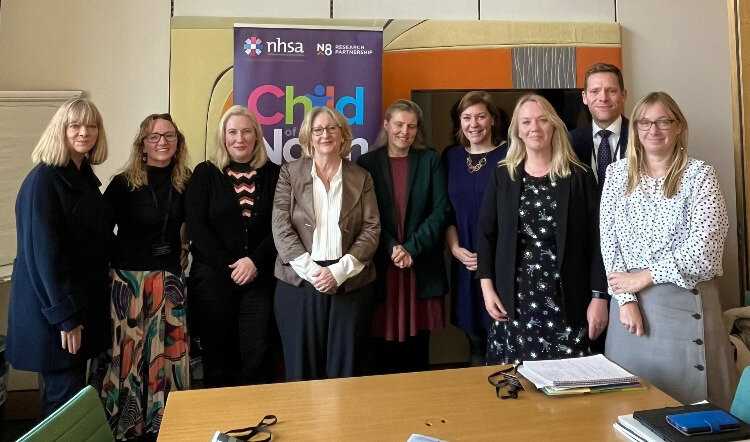
At the end of October, the Child of the North All Party Parliamentary Group (APPG) held its first meeting and evidence session in Parliament.
Based on the N8 Research Partnership and Northern Health Science Alliance’s Child of the North report, the APPG has been established to work with Parliamentarians to build a fairer future for children across the North of England.
At the meeting, Emma Lewell-Buck, Member of Parliament for South Shields, and Mary Robinson, Member of Parliament for Cheadle were confirmed as Co-Chairs of the group. The Vice-Chairs are Kim Johnson, Member of Parliament for Liverpool Riverside, Rachel Maskell, Member of Parliament for York Central, and Sharon Hodgson, Member of Parliament for Washington and Sunderland West.
The APPG will build on the NHSA’s and N8’s Child of the North Report, and this first inquiry and evidence session focused on the cost-of-living crisis and child poverty across the North.
Professor Kate Pickett, University of York, and Professor David Taylor-Robinson, University of Liverpool provided an overview of the Child of the North report and discussed the stark findings. Children in the North are more likely to live in poor families and will have suffered larger cuts in public services than elsewhere. These inequalities contribute to the North-South productivity gap, and we need to see place-based-child focused policies that address these inequalities.
The evidence session included invaluable contributions from
- Dr Carolyn Snell, University of York
- Dr Rachel Loopstra, University of Liverpool
- Anna Turley, Chair, North East Child Poverty Commission
- Amanda Bailey, Director, North East Child Poverty Commission
- Sophie Balmer, Youth Ambassador, End Child Poverty Coalition
Dr Carolyn Snell, University of York presented evidence regarding fuel poverty and told the group that the highest rates of fuel poverty are amongst single parent households, lower income households, and those living in the rented sector. The effects of fuel poverty on children include an increased likelihood of respiratory illness, impacts on mental health, and reduced educational attainment and attendance.
Dr Rachel Loopstra, University of Liverpool explained that the pandemic had an enormous effect on people’s ability to access food and the cost of living crisis has further exacerbated this. Indirect effects on children’s health due to food insecurity include impacts on parental mental health and impacts on interactions with other children (e.g. not being able to invite them around for dinner etc).
Hannah Davies, Health Inequalities Lead at the NHSA said:
“The first meeting of the Child of the North APPG was a huge success. A big thank you to the Group-Chairs and Vice-Chairs and the Officers. It was notable that so many Members of Parliament attended the inaugural meeting and evidence session regarding such an important and urgent policy debate.
“It was great to hear from academics, third sector organisations, and people with lived experience on what we can do to tackle the cost of living crisis and the inequalities impacting children across the North.
“The group discussed practical policy recommendations that would tackle child poverty in the North such as improving housing for energy efficiency, expanding free school meals, and uprating benefits in line with inflation.
“I look forward to discussing the first draft of the group’s report at our next meeting and working together with Parliament to build a fairer future for children across the North of England.”
The full report can be read here.